
views
Being Fun
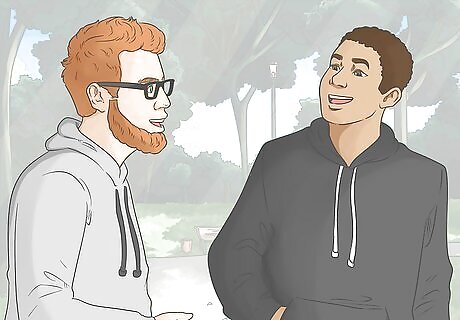
Be a good listener. We all need an ear sometimes. Practice your good listening skills and really give your friends attention when they're speaking. Too often, we're merely waiting for our turn to speak and trying to think of things to say. Instead, put the ball in your friends' court and keep them talking. When you're listening to someone, ask questions to keep them talking. Look them in the eye and nod your head to show that you're listening. And really listen to what they're saying, don't just wait for your turn to talk. One good listening technique is repeating and summarizing what your friend has said. When it's your turn to respond, start with things like, "It sounds like what you're saying is..." or "That's interesting how you..." Don't one-up people in conversation. If your friend is upset and telling you about a break-up they're going through, it's not the time to talk about how your last break-up was so much worse. A conversation isn't a contest.
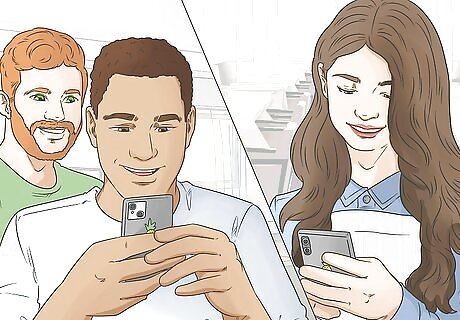
Be spontaneous. People like to be around people who make life feel like an adventure. If you want to be someone that people enjoy being around, someone who people want attention from, you need to learn to inject a little energy and spontaneity into your life. Be willing to change plans and go with the flow. Try making plans that you'll specifically break. If you go home every day and play video games for an hour, decide that you'll do something else, but don't come up with what it is until you get out of school. Commit to coming up with a fun plan by the time you get home. Make yourself be spontaneous right now. Chat up the cute barista from the coffee shop you always go to, or call and old friend and ask if they want to hang out tonight. There's no time like the present.
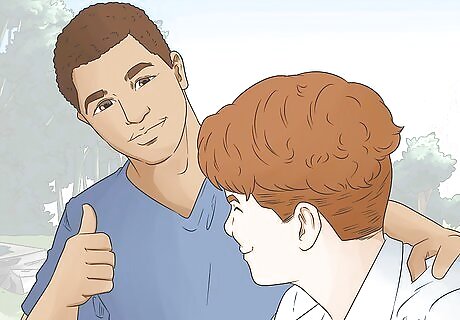
Be agreeable. In general, people don't want to turn every conversation into a debate. We enjoy the presence of people who are supportive, positive, and make it easier to make plans, as opposed to making it harder. Make "yes" your go to answer when friends ask if you want to go out and make plans. Just do it and people will look on you as a fun and supportive presence in their lives. Try to distinguish between important things to speak up about and less important things. If all your friends want to go out for tacos tonight, but you just ate tacos for lunch, is it really worth re-opening the debate and dissent? Probably not. Being agreeable doesn't mean being a doormat. If you have a legitimate complaint, or you disagree with people about a matter of safety, people enjoy being around people who speak their minds as well. Just make sure you're not dissenting just to have something to say.

Be positive. Nobody wants to be around a downer. try to stay as positive as possible and bring a positive influence to your friends, and it's more likely that people will want to be around you regularly. If you're bringing the fun instead of bringing the dourness, people will be more likely to include you. Try to find the fun in things. If you're out at dinner and the service is terrible, the food stinks, and the place is crowded and loud, instead of getting grumpy, get everyone playing a game, or try to laugh it off. Get people talking about something positive. Try complaining less. If you feel like you're wanting to talk about something you don't like, steer yourself away and talk about something you do like.

Be active. Given the option, most people want to hang out with someone who wants to do things, not someone who wants to "just sit around." Even if you're quiet and reserved, come up with fun and unique ideas for doing things, and make plans to set them in motion, rather than just waiting around for something to happen. Write out five things you enjoy doing in your town and keep the list on you at all times. If your friends are bored and hanging out, you'll be the one with the back-ups in an emergency. Sometimes, just hanging out quietly can be fun. You don't need to be wild and crazy all the time to make people want to be around you, and introverts are often just as fun to be around as super-extroverts.

Share your ideas. While it might seem, especially when you're young, that everyone conforms to the same ideas and actions, in the long term, people want to be around people who are real. People who are unique. People who have their own ideas and aren't just willing to follow the crowd. Don't parrot things you hear your parents say, or you hear popular kids say, just because you want to fit in. Don't be afraid to take on leadership roles. If you're working on a school project and everyone is waffling, take charge if you've got an idea about what to do. Don't automatically wait for others to be in control. If you speak from a place of confidence, it will make you seem like a mysterious and magnetic person other people will want to be around. Practice speaking clearly and loudly when you share your ideas.
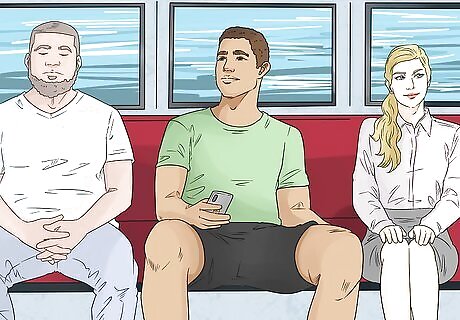
Put others at ease. If you seem nervous, you'll make other people nervous. If you're relaxed, comfortable in your own skin, and easy-going, other people will pick up on it quickly and enjoy being in your presence. One of your big goals should be putting other people at ease when you're in their presence. Learn to sit comfortably, breathing normally and sitting still. Don't tap your foot, chew gum nervously, or otherwise fidget. Just sit and be. Practice just sitting sometimes. If you're riding the bus, you could fidget with your phone or listen to headphones, or you could just practice sitting there, doing nothing. Practice looking like you're at ease.
Being Confident

Be prepared. If you're constantly half-prepared, confused, and overwhelmed by your responsibilities, others will start to look on you as a burden rather than an enjoyable presence. Even things as simple as staying prepared for class will make you seem more enjoyable than a class neighbor who never has a pencil, wants to know what page you're on, and has to ask for homework help at the last minute. Do what's expected of you and more, if possible. If you do the dishes without being asked, always hang up your towel, and cook meals for everyone, you'll be much more likely to be asked to be someone's roommate. Be self-sufficient, as much as possible. The less you need to ask for help, the more you'll be confident in your own abilities, as well as you'll be able to help others with their own problems. You'll be useful.

Be interested in others. If you demonstrate curiosity, friendliness, and a legitimate interest in the lives of others, you'll be fun to be around. People like to be around real people, people who are curious and seem supportive. Be one of those people. Ask lots of questions in conversation to keep people talking and at ease in conversation. You can keep conversations flowing easily by asking more questions. Even simple things like, "What was that like?" or "How did it feel?" will keep people talking. A lot of times, people will misidentify social awkwardness as self-centeredness or egotism. While this is unfortunate, you can do a lot to avoid this misconception by showing an honest and legitimate interest in other people. Don't just talk about yourself. Look people in the eye when you speak to them. Show them physically that you're open and paying attention as they speak.

Speak clearly and confidently. It's not just your ideas and your presence that matter, but the way you say the things you think. If you have something to say, say it clearly and loudly, as if you stand behind it, not like you're embarrassed of what you think. If it's worth saying something, say it loud enough to hear. Don't hedge your statements or go back on them. Avoid starting sentences like, "Sorry, but..." or "I don't really know..." or "This is dumb, but..." Don't obliterate your ideas before you've even shared them. Just say what you think. Stand up for yourself.

Know when to stop talking. The less you say, the more powerful the things you do say will be. It's not always appropriate to chip in, and in fact, people usually want to be around other people with whom they can comfortably share some measure of silence. It's not always necessary to be talking a lot. Don't talk just to talk. If you don't have anything to contribute to a group conversation, or if your opinion would merely be repetitive, just stay quiet. It's not important to be the center of the conversation.

Be yourself. People will quickly be able to separate the poseurs and the fakes from the real people in the world. Don't pretend to be something that you're not. If something is popular, it won't necessarily get you more friends if you pretend to like it. Be who you are and like what you like. On the other side of this coin is the idea that you can be anyone you want. Just because you've been meek or quiet in the past doesn't mean you always have to be. Be willing to make a change for the better and improve yourself, if you identify something that needs to be improved. What's your ideal version of yourself?
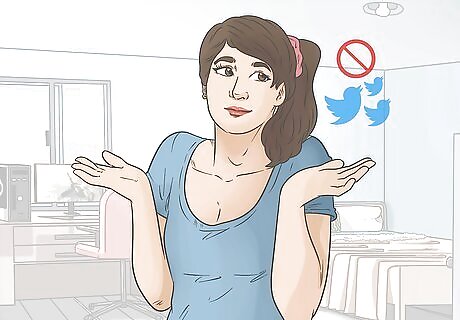
Let your actions speak for themselves. Some people make the mistake of thinking that they need to build themselves up with exaggerations and brags to get other people to like them. While this can come off as being a minor irritation at best, it can also lead people to believe that you're disingenuous, unconfident, and lame. Let your actions and your production speak for itself, don't build yourself up with brags. Don't humble-brag, either, especially on social networking. Nothing can sour people to your presence quite like a bunch of tweets about how you're so bummed about how much work you have to do now that you're the team captain, or how hot the water in your hot tub gets in the summer. Boo-hoo.
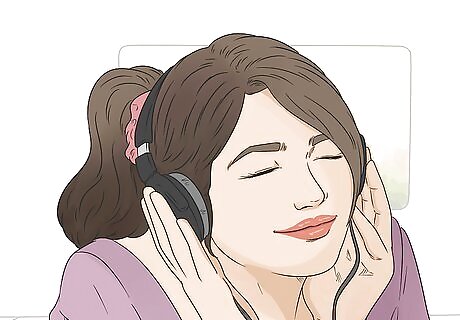
Silence your inner critics. That little voice that tells you how you're not funny enough, or good looking enough, or rich enough, or smart enough to hang out with people? Tell it to shut up and buzz off. There's nothing that undermines your ability to move through the world confidently like this annoying little voice. It only keeps you from having the fun and the friends you want to have. Try out a mantra that will keep you positive, even if it feels corny. But let that voice invade your brain and crowd out the other complainers. Steal confidence boosting lines and ideas from uplifting songs. Even if it's some braggadocious rap, start bumping that Jay-Z to get yourself pumped. You got this, whatever it is.
Looking Good
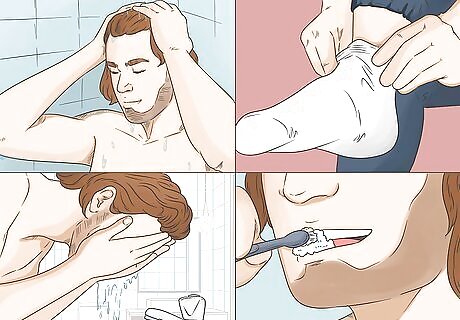
Practice good hygiene. Your personality is the most important thing to work on, if you want to get people to enjoy being around you, but that doesn't mean that more superficial things should be ignored completely. Especially if you stink. If you want to be fun to be around, make sure you practice basic hygiene so others can stand to be in your presence. Shower at least 4-5 times a week and change your clothes regularly. Change your socks and underwear every day. Wash your face, under your arms, and your hair regularly. Brush your teeth twice a day.
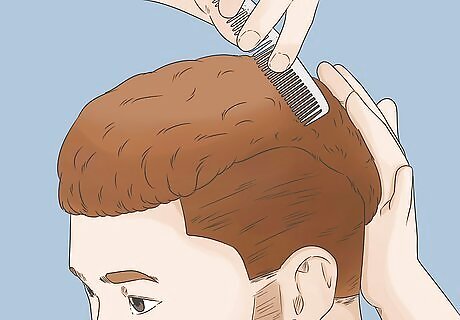
Get a flattering haircut. First impressions matter. If you're a 20 year old with an 8 year old's bowl cut, it's likely that you could be turning some people off of you before they even get a chance to know you. Get a haircut and learn to style your hair in a way that flatters your features and rounds out your face. Even if you go for an unkempt rockstar hair look, you've got to comb it every now and then. Nobody will want to hang out with you if you've got spiderweb growing in there.
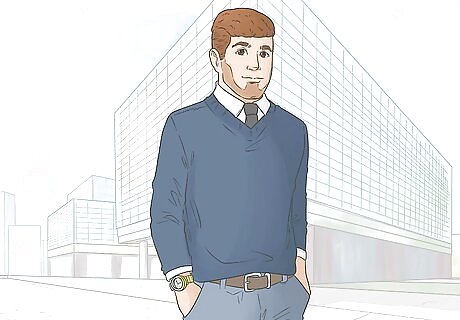
Wear flattering clothes. While you don't need to wear what's popular, what's expensive, or what other people are wearing, it's true that you'll feel confident and happy if you're wearing clothes that make you feel confident and happy. That confidence will rub off on other people and make you fun to be around. There's no one cool way to wear clothes, and what's cool will totally depend on who you are, how old you are, and your own sense of style. You can look cool wearing thrift store clothes or wearing clothes from the mall. Pick a style that makes you feel good. If you feel better and more confident when you rock a hoodie and skater shoes, do it. If you feel confident when you dress up, start dressing up every day. If you can't live without your Levi's, get five pair that match.
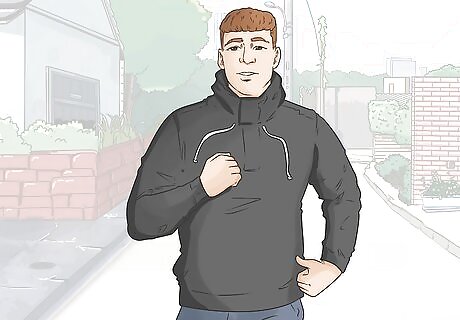
Be healthy. Develop a healthy interest in making your body work for you, in ways that make you proud. If you respect your body, people will see that you're a person worthy of being around. Find a physical activity that you enjoy and try to get in shape, as much as possible. Not everybody has to play sports, or be cut rock climbers, but try to find something physical that you enjoy doing. Try doing free running, or skateboarding, or hiking, if you don't like traditional team-based sports. While it might seem like unhealthy vices like smoking, drugs, or alcohol can help you make friends, they won't help you keep friends in the long term, especially if you develop a problem with substance addiction. You want to be around people who have your best interest in mind, not people who want to screw it up. Practice healthy habits.

Be comfortable in your own skin. Nobody has a perfect body, or feels comfortable all day every day. But if you want people to enjoy being around you, try to put your self-consciousness and reservations about your body in the backseat and get comfortable being who you are.
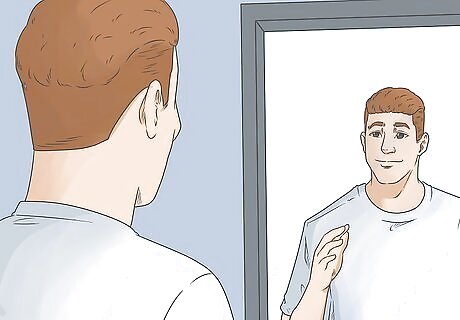
Know yourself. When you're young, it can be hard to figure out who exactly you are. Are you the kind of kid who picks up a guitar and dons a jean jacket and never takes it off? Are you the kind of kid who wears polo shirts and hangs out with the football team? Are you the kind of kid who games? There doesn't have to be a single answer to this question, and the more you're honest with yourself about your interests, your likes and dislikes, the more confident you'll be, and the more easily you'll be able to find friends who like you and want to be with you. Just because something is popular doesn't make it good. You don't have to be any particular way to fit in. If you love football and Magic: The Gathering equally, rep both at the same time. Be yourself.


















Comments
0 comment